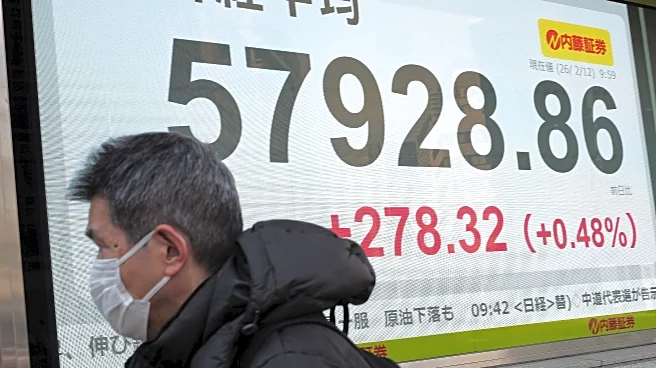Rapid Read • 6 min read
President Trump's tariffs, now at the highest level since 1933, have sparked concerns about their impact on the U.S. economy. The tariffs, which include a 15% rate on most countries, are expected to lead to higher consumer prices as companies pass on costs. The labor market showed signs of strain, with only 73,000 jobs added in July and previous gains revised down. Despite these challenges, stock markets have surged, with the S&P 500 and Nasdaq hitting record highs, as investors remain optimistic about the economy's resilience.
AD
The tariffs could lead to increased consumer prices, affecting household budgets and potentially slowing economic growth. The labor market's slowdown raises concerns about job security and consumer confidence. However, the stock market's performance suggests that investors believe the economy can withstand these pressures. The situation highlights the delicate balance between trade policies, inflation, and economic growth, with significant implications for businesses and consumers.
Economists and policymakers will continue to assess the tariffs' impact on inflation and economic growth. The Federal Reserve's response, particularly regarding interest rate adjustments, will be critical in managing economic stability. Businesses may need to adapt their strategies to mitigate tariff-related costs, while consumers could face higher prices for goods. Ongoing trade negotiations and potential policy changes will also be closely watched for their effects on the economy.
AD
More Stories You Might Enjoy













